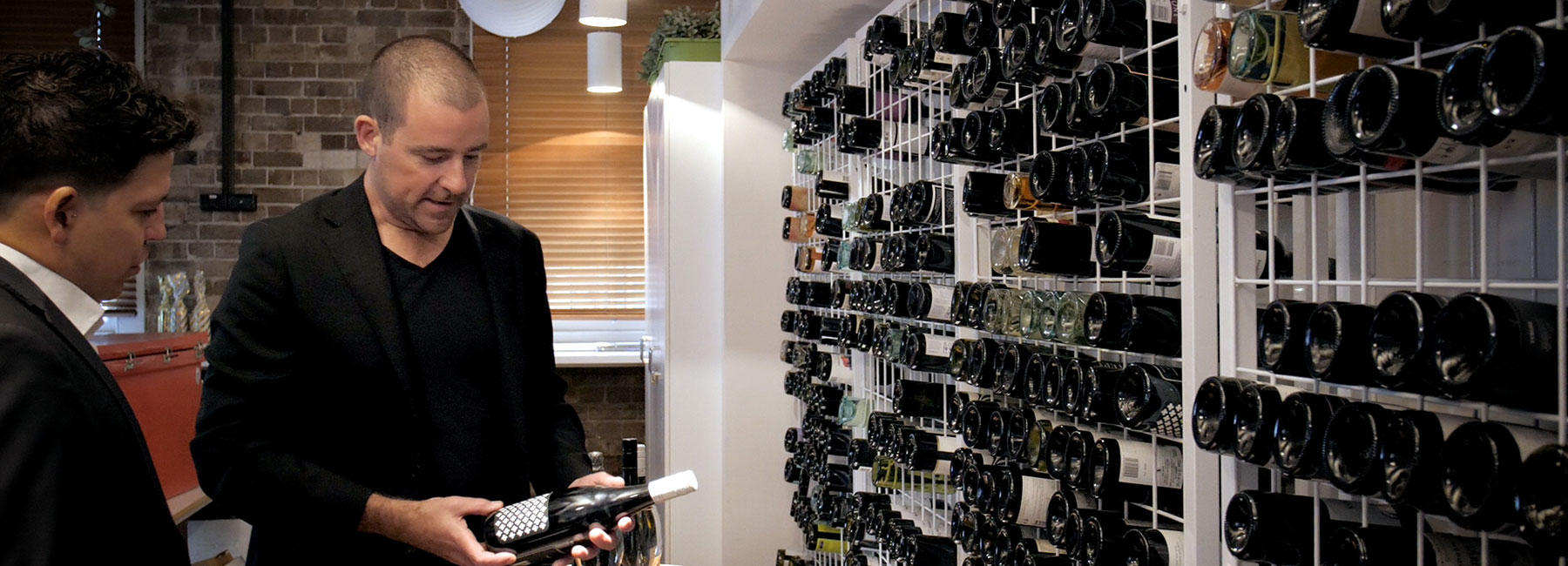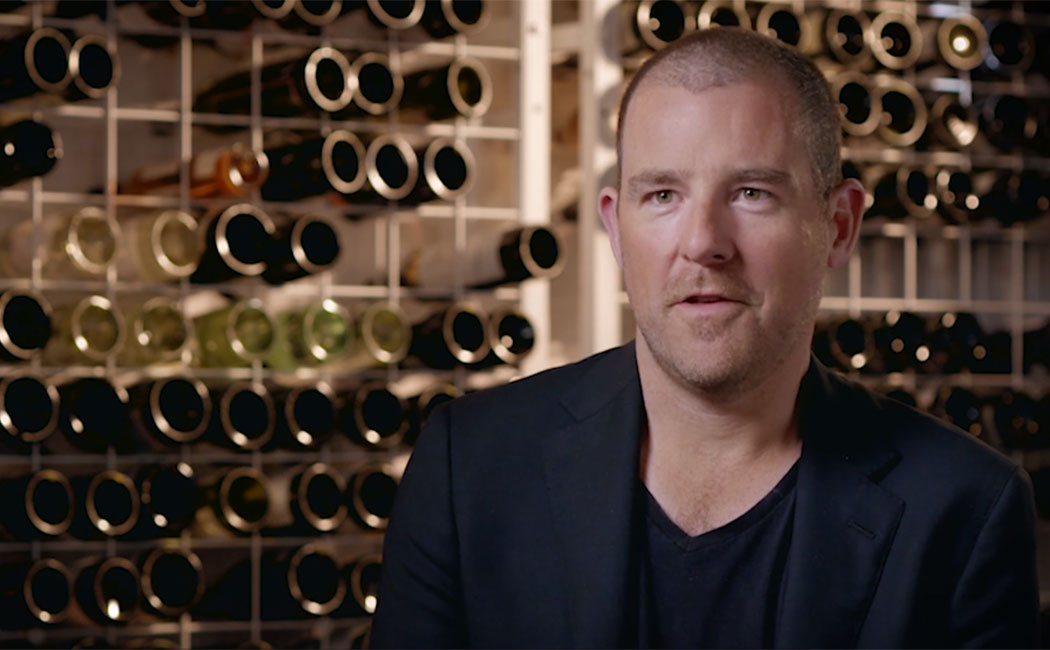The Wine Collective (TWC) is a direct-to-consumer online wine retailer and former subsidiary of The Wine Society, Australia’s oldest wine club founded in 1946. TWC continues to uphold The Wine Society’s 74-year history by providing its members with access to an amazing range of Australian and international wines.
“Digital transformation never ends. I believe once a business has transformed, you must continue transforming. It’s a new way of working, staying nimble and agile and ensuring the business maintains pace with local and global trends. And ensuring customers remain satisfied across any medium they want to use.”
Lloyd Heinrich Chief executive officer, The Wine Collective
In 2017, The Wine Collective merged with one of Australia’s fastest growing independent online retail groups. This merger drove significant growth but brought considerable challenges in bringing together legacy brands while continuing to provide a superior customer experience.
Business challenge
TWC’s vision is to be at the forefront of the digital wine revolution in Australia, which means driving more people to shop online for wine. The contact centre, TWC’s main support channel for online customers, had been built over time with functionality added as needed, and as a result had become overly complex. TWC had also undergone digital transformation across many business processes; however, the contact centre had not maintained pace.
TWC wanted to make it easier for contact centre agents to deliver services to customers by simplifying and improving processes and leveraging modern call centre technology. It recognised opportunities to improve the customer and employee experience to enable increased productivity, cost efficiencies, and overall business growth. Lloyd Heinrich, CEO for TWC, said, “Change was a high priority. We needed to agree on a set of actions within our contact centre and make it happen quickly.”
“Change was a high priority. We needed to agree on a set of actions within our contact centre and make it happen quickly.”
Lloyd Heinrich Chief executive officer, The Wine Collective
Solution
TWC engaged DXC to review contact centre operations and recommend ways to transform part of an already digitally savvy business to increase productivity and accommodate the capacity for future change. TWC’s business is energetic and passionate, so it needed a partner of the same culture to support this project, quickly define the focus and create a sense of urgency amongst the team for action. After engaging with several senior DXC leaders, Heinrich knew the fit was right.
The DXC team leveraged human centred design (HCD) and agile principles to connect the dots between people, process, technology, physical and virtual spaces through its experience-led transformation framework. Collaborating closely, TWC and DXC co-designed a practical way to review existing contact centre practices and leverage digital technology to better manage people and further enrich customer experience. The HCD approach utilised by DXC puts humans at the centre of the transformation and allows a deep understanding of their current experience.
TWC had previously attempted to address surface problems with little success, so DXC focused on foundations – articulating what solutions could help overcome challenges, and how to tell that story back to the TWC team in a compelling way.
Qualitative and quantitative insights were collected through interviews and surveys of the TWC team, which helped develop a better view of TWC’s current contact centre state, needs and behaviours and why it was struggling to implement fast changes in line with the rest of the organisation. DXC’s team of experienced designers, change strategists, business transformation leads, and SMEs gained deep insight into the challenges TWC was facing through different discovery techniques (such as desktop research, contextual interviewing, facilitation of workshops, etc) and by leveraging digital tools.
As a result of the significant challenges faced by most businesses in 2020, the majority of TWC’s team moved to a remote working environment. With the infrastructure in place to handle that, the major challenge was ensuring the team felt connected during the project while working remotely. Research and workshops were conducted almost entirely virtually for the first time, with DXC conceiving new ways to interact and engage with TWC during this critical phase. DXC’s previous experience working remotely and its understanding, empathetic approach ensured success. The new virtual contact proved just as successful as face to face in achieving the correct research saturation points to help TWC with their contact centre transformation.
“We enjoyed working with DXC, and the project ran smoothly. We were all in the same situation dealing with the challenges the world threw at us while trying to deliver in a short timeframe. DXC understood the substantial risk we were taking in moving so quickly. While the team hadn’t delivered a project like this remotely before, they gained our trust to try new things with the understanding that some would work and some wouldn’t. The plan and actions created have now been fully incorporated into our digital transformation plan as one of the main pillars.”
Lloyd Heinrich Chief executive officer, The Wine Collective
DXC took some previous work undertaken by TWC and clarified it to create a clear plan with agreed actions, timeframes and resources. This meant the TWC team, including agents, had essential and significant input to the process, with solutions coming directly from them rather than from the top down.
Dan Santos, Senior Consultant Business Transformation at DXC, said, “TWC’s project is a great example of how we leverage HCD and agile principles to help clients provide an action plan to improve user experience.”
Heinrich said, “We enjoyed working with DXC, and the project ran smoothly. We were all in the same situation dealing with the challenges the world threw at us while trying to deliver in a short timeframe. DXC understood the substantial risk we were taking in moving so quickly. While the team hadn’t delivered a project like this remotely before, they gained our trust to try new things with the understanding that some would work and some wouldn’t. The plan and actions created have now been fully incorporated into our digital transformation plan as one of the main pillars.”
Benefits and results
This project was considered critical for TWC’s business since the contact centre impacts roughly half its customer facing team. The project fostered new opportunities to improve customer experience and increase productivity, creating the capacity for future change by laying the foundations for a high-quality contact centre. It also paved the way for ongoing cultural change within the contact centre, with the team more collegiate and aligned. This value will continue to grow with the team clearer on what they’re doing and how they’re working towards new, collectively agreed goals.
TWC also learned some valuable lessons on change management and stakeholder buy-in. While the team had a good idea of what needed to be achieved, they weren’t as clear about how to progress. DXC worked with TWC to bring team members in as change agents to make major contributions to project steps and desired outcomes.
Heinrich commented, “Change requires buy-in from teams. You can’t emphasise the importance of the HCD approach enough. DXC did a great job involving TWC to establish solutions and align them with requirements – it’s our language, and we helped create the solutions. TWC must continue to evolve, and people have now seen how that can be done positively, improving old processes without too much pain. That’s one of the biggest learnings.”
As part of DXC’s recommendations, team members received significant training and development to become better equipped to interact with customers. The way they work was redesigned with the resulting customer experience more efficient, seamless and integrated – whether shopping online or over the phone.
Heinrich said, “While this work focused on speeding up strategy execution which was largely in place, the simplified processes, improved consistency in the business, and growth in sales have been welcome bonuses.”
The future
TWC and DXC’s relationship strengthened during the project. TWC will continue to invest in technology to optimise how telephone sales agents work, ensuring they are more dynamic, efficient and productive.
Heinrich concluded, “Digital transformation never ends. I believe once a business has transformed, you must continue transforming. It’s a new way of working, staying nimble and agile and ensuring the business maintains pace with local and global trends. And ensuring customers remain satisfied across any medium they want to use.”

